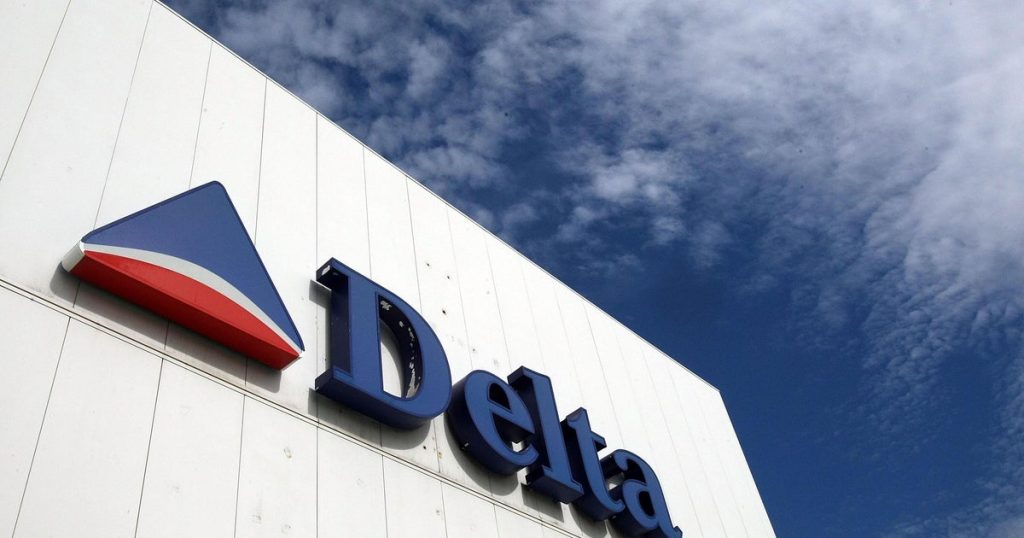A Delta Air Lines flight scheduled from Madrid to New York faced a significant disruption due to an engine problem that necessitated an emergency landing in the Azores. Passengers, who included 282 customers and 13 crew members, had to spend more than a day on the small island of Terceira before continuing their journey. Delta Airlines has expressed its apologies and stated that they are reaching out to affected customers regarding compensation.
| Article Subheadings |
|---|
| 1) Flight Details and Emergency Landing |
| 2) Passenger Experience and Accommodations |
| 3) Delta’s Response and Safety Reassurance |
| 4) Ongoing Investigation and Next Steps |
| 5) Broader Implications for Air Travel Safety |
Flight Details and Emergency Landing
Delta flight 127 departed from Madrid en route to John F. Kennedy International Airport (JFK) in New York on Sunday. While in midair, around three hours into the flight, the aircraft experienced a mechanical issue related to one of its engines. In accordance with safety protocols, the flight crew made the decision to redirect the plane to Lajes Air Base in the Azores, an autonomous region of Portugal comprised of several volcanic islands.
The Airbus A330 landed safely at Lajes, approximately 1,100 miles from New York. An airline spokesperson confirmed that all safety measures were strictly followed, and the flight crew acted in a responsible manner to address the emergency promptly. Passengers were deplaned within an hour of landing, with no reported injuries among either the customers or crew members.
Passenger Experience and Accommodations
After the unexpected landing, passengers and crew members spent nearly 29 hours on Terceira Island. Delta Airlines arranged accommodations at local hotels where passengers could rest, as well as providing meal services to ensure they were taken care of during their extended stay. In addition, once all preparations were made, passengers boarded a new aircraft that facilitated their transfer back to JFK airport on Monday afternoon.
Normally, the flight from Madrid to New York takes approximately 8 hours and 20 minutes, making the detour and subsequent delay especially frustrating for travelers who were anticipating a more direct journey.
Delta’s Response and Safety Reassurance
In light of the incident, Delta Airlines reiterated its commitment to safety. The airline has expressed its understanding of the inconvenience caused to passengers and is currently reaching out to each affected traveler to convey apologies and discuss compensation options. “As safety comes before all else at Delta,” a spokesperson highlighted the company’s responsibility towards customer care, undoubtedly prioritizing their experience and well-being throughout this unexpected situation.
Transportation Secretary Sean Duffy has also contributed to the discussion about air travel safety, reiterating the well-established safety protocols that airlines, including Delta, adhere to. Duffy emphasized that with the volume of air traffic today, flying is considered to be a safe mode of transportation. This statement aims to bolster public confidence, especially following incidents like the one involving Delta flight 127.
Ongoing Investigation and Next Steps
The specifics surrounding the mechanical issue that caused the emergency landing have yet to be disclosed by Delta. As of Wednesday, further information regarding the ongoing maintenance and inspection of the aircraft was unavailable. Aviation experts speculate that a full investigation is underway to determine the root cause of the engine malfunction.
The Federal Aviation Administration (FAA) has acknowledged the situation and is expected to ensure all regulatory requirements are followed in assessing the aircraft’s mechanical integrity before it returns to service. This aligns with the FAA’s broader mandate to enforce safety standards across the aviation industry.
Broader Implications for Air Travel Safety
This incident serves as a reminder of the importance of rigorous safety protocols within the aviation sector. Although the flight ultimately landed safely and all passengers were cared for, the occurrence raises questions about the mechanical integrity of aircraft and the measures in place to prevent similar situations in the future.
Aviation safety experts suggest that heightened scrutiny and regular audits are crucial in maintaining public trust in air travel. Recent technological advancements in aircraft safety have significantly reduced the incidence of mechanical failures. However, events like these emphasize the necessity for constant vigilance and ongoing improvements within the industry.
| No. | Key Points |
|---|---|
| 1 | Delta flight 127 experienced a mechanical issue mid-flight, prompting an emergency landing in the Azores. |
| 2 | Passengers spent approximately 29 hours on Terceira Island before being accommodated and transferred to New York. |
| 3 | Delta Airlines has acknowledged the inconvenience and is reaching out to passengers regarding apologies and compensation. |
| 4 | The exact nature of the mechanical issue remains under investigation by Delta and the FAA. |
| 5 | The incident highlights the importance of aircraft safety measures and regulatory compliance in aviation. |
Summary
The emergency landing of Delta flight 127 in the Azores underscores the significance of mechanical safety in aviation. While no injuries occurred, the incident necessitated the airline to care for its passengers in an unforeseen manner. Moving forward, scrutiny of aircraft safety protocols will remain paramount to ensure public confidence in air travel.
Frequently Asked Questions
Question: What led to the emergency landing of Delta flight 127?
The flight experienced a mechanical issue with one of its engines, leading the crew to safely divert the airplane to Lajes Air Base in the Azores.
Question: How did Delta Airlines respond to the incident?
Delta Airlines expressed sincere apologies to affected passengers and arranged accommodations, meals, and subsequent travel to New York.
Question: Are there ongoing investigations regarding the mechanical issue?
Yes, Delta and the Federal Aviation Administration (FAA) are investigating the mechanical failure to ensure safety standards are maintained.


